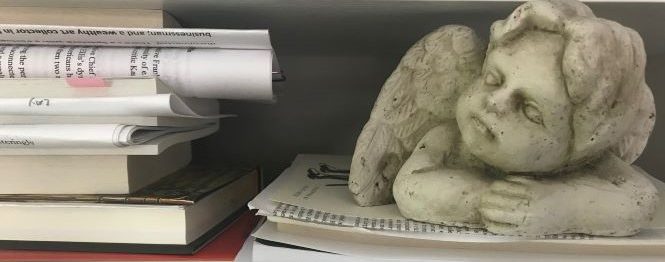Every end-of-year, I cross-reference “best of the year” fiction lists published by several publications*. I do this not only to see where everyone agrees but also to discover novels I missed. Here are this year’s results — the three novels appearing on a majority of the lists, plus two novels that caught my attention.
Please keep in mind this is not a completest journey, rather a work of curiosity and love. There are so many lists! I stop when I’ve run out of steam. This year, I did not source NPR’s Book Concierge: Our Guide to 2018 Great Reads with more than 300 favorites broken down into 27 filtered lists that include “Rather Long” and “Rather Short” and “Ladies First” and “Eye-Opening Reads.” Their coverage is clever but not for this effort.

Here’s the #1 novel that appeared the most on the best lists I investigated. Asymmetry by Lisa Halliday tells the story of a young editor’s relationship with a famous and much older writer modeled after Philip Roth. Another section of the book is narrated by an Iraqi-American man detained by immigration officers at London’s Heathrow airport, where he spends the last weekend of 2008 in a holding room. Halliday brings the stories of her debut together in what’s described as “an unexpected coda”.

The novel that came in next with the most appearances is There, There by Tommy Orange, another debut, this one focusing on urban American Indians wrestling with issues of identity and belonging. All are on their way to a powwow in Oakland, California. From the book’s description: “As we learn the reasons that each person is attending the Big Oakland Powwow — some generous, some fearful, some joyful, some violent — momentum builds toward a shocking yet inevitable conclusion that changes everything.”

The third most selected novel is The Great Believers by Rebecca Makkai, a big, all-at-once heartwarming and heartbreaking story about the AIDS epidemic in 1980’s Chicago. Makkai writes movingly about the close, turbulent friendships among gay men during the Reagan years struggling for help and recognition as the disease is killing them. Makkai also writes eloquently about the cruelty of prejudiced families and society. Two major sub-plots offering intrigue include the mystery of a European art collection from the 1920’s and a mother looking for her estranged daughter in Paris.

A novel that caught my eye (one that I missed this past year) is Katherine Weber’s Still Life with Monkey. Selected alone by The Washington Post on their 50 Notable Fiction list, the novel is about a man paralyzed in a car accident and assisted by a helper monkey named Ottoline. The Washington Post review by Karen Joy Fowler says Weber’s novel “is a beautifully wrought paean of praise for the ordinary pleasures taken for granted by the able-bodied. In precise and often luminous prose, with intelligence and tenderness, Weber’s latest novel examines the question of what makes a life worth living.” Fowler, however, finds the ending less than satisfactory: “The answer the book offers is its only disappointment, but a profound one.”

Another novel I made a note to read is The Frolic of the Beasts by Yukio Mishima. Selected alone by Publisher’s Weekly, this novel tells the story of a dark love triangle between a university student, the arrogant literary critic and high-end shop owner who mentors him, and the critic’s emotionally repressed, mysterious wife. Author Mishima tells a common story with unusual twists and crisp description. This slim novel of 166 pages was originally published in 1961, now available for the first time in English translation. The publisher describes it as “a tale of psychological self-entrapment, seduction, and murder.” Yukio Mishima became world-famous and is frequently described as the 20th century’s most important Japanese author.
*Publications sourced for the 2018 best lists include Kirkus Reviews, Publisher’s Weekly, The Washington Post, The New York Times, BuzzFeed, Slate, The Boston Globe, Time, The Wall Street Journal, HuffPost, The New Yorker
